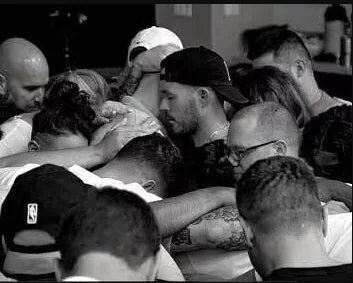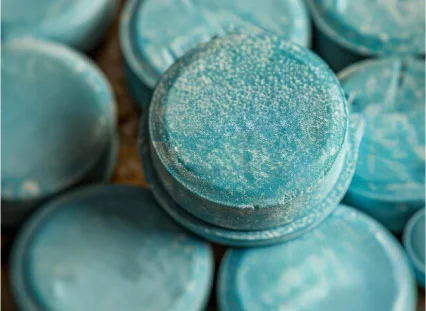When someone is battling alcoholism, they often can’t overcome it by themselves. Alcoholism affects judgment and willpower, which makes it even tougher for a person to overcome addiction. That’s why they need you. Your help can make a huge difference. They need your encouragement and understanding to face the challenges of recovery. We will help you understand how to help an alcoholic while they are in rehab in Lake Worth FL, what treatment options to consider, and how to, eventually, get your loved one to get better.
Skip to:
What Is Alcoholism?
Before you learn how to help an alcoholic, you need to know what alcoholism is. Alcoholism is when someone cannot control their drinking because they depend on alcohol. This condition can seriously harm their health, work, and relationships. Families often suffer, too, because the behavior and health of the person drinking can cause stress and sadness.

One big challenge is admitting there is a problem. Often, people with alcoholism don’t think their drinking is a problem and are convinced they can stop anytime they want. This is a great challenge for you when you are learning how to help an alcoholic friend or a family member because it makes it difficult for families and friends to bring up their concerns without causing conflict or denial.
Is There a Problem With Alcoholism in Florida?
According to the findings of the Substance Abuse and Mental Health Services Administration (SAMHSA), from 2017 to 2019, each year, on average, about 4.2% of Florida’s population, or around 770,000 people, struggled with an alcohol use disorder. These numbers are a cause for concern as they indicate there are many people in need of help. Knowing how to help an alcoholic can prevent many serious and sometimes fatal consequences of alcohol abuse.

When Is Help Needed?
Knowing when help is needed can change everything because it leads to early intervention. Get help the sooner you can. This way, you prevent more severe health problems and personal issues. Look out for these symptoms:
- Drinking more or longer than intended: They often drink more alcohol, or for a longer time than they planned.
- Unable to cut down: They’ve tried to stop or reduce drinking but can’t.
- Lots of time spent drinking: They spend a lot of time drinking or recovering from drinking.
- Cravings: They feel a strong need or urge to drink.
- Neglecting responsibilities: Their drinking or hangover often interferes with their responsibilities at work, home, or school.
- Continuing despite problems: They keep drinking even though it’s causing trouble with family and friends.
- Withdrawal symptoms: They experience withdrawal symptoms like shaking, sweating, nausea, or anxiety when they don’t drink.

Get Your Life Back
Find Hope & Recovery. Get Safe Comfortable Detox, Addiction Rehab & Dual Diagnosis High-Quality Care.
Hotline (855) 459-2880Approaching Your Loved One
Talking to someone about their drinking is one of the toughest things while figuring out how to help an alcoholic. Here are some ways you to do it without making them feel defensive:
- Choose the right time and place: Pick a quiet moment when the person is sober. It should be a private and safe place where you can talk openly without interruptions.
- Use “I” statements: Instead of saying, “You drink too much,” you could say, “I feel worried about how much you’ve been drinking lately.” This way, you’re sharing your feelings rather than blaming them.
- Be supportive, not judgmental: Make it clear that you care about them and are worried about their well-being. Avoid sounding angry or disappointed.
- Listen as much as you talk: Give them a chance to share their side of the story. It’s important they feel heard, not just lectured.
- Offer specific examples: Mention specific times when their drinking caused problems to make the issue more real for them.
- Express the impact: Let them know how their drinking has affected you and others because that can be a powerful motivator for seeking help.
- Encourage them to seek professional help: Suggest looking into professional advice or support groups but let them decide to take that step.

Treatment Options
What are the best ways to help an alcoholic? Look for treatment options. There are several effective treatment options available:
- Detox
- Therapy
- Medication
- Support groups
Detox
Detoxification is the first step in treating alcoholism, and it involves removing alcohol from the body completely. We do our alcohol detox in Florida in a controlled environment where medical professionals can manage withdrawal symptoms safely.
Therapy
Professional therapists are experienced and know exactly how to help an alcoholic. Some therapies are:
- Cognitive behavioral therapy (CBT): Helps people identify and change negative thinking and behaviors related to drinking.
- Motivational interviewing: Increases an individual’s motivation to change their drinking behavior.
- Family therapy: Involves family members in the treatment process to improve communication and resolve conflicts.
Medication
Some medications can help manage alcohol dependence:
- Disulfiram: Makes a person feel sick if they drink alcohol.
- Naltrexone: Reduces cravings for alcohol.
- Acamprosate: Helps reduce symptoms of withdrawal and the desire to drink.
Support Groups
Groups like Alcoholics Anonymous (AA) provide a community of support from people who are facing similar challenges. These groups know how to help an alcoholic and they offer a safe space to share experiences and support each other in recovery.
Starting with Detox
First, you need to remove alcohol from your system. Your body needs to adjust to functioning without it. This cannot happen overnight: it takes several days to over a week. Of course, it all depends on how much alcohol you drank and for how long.
When you stop drinking, you will face some consequences. We call these withdrawal symptoms. You might:
- Shake
- Sweat
- Get nauseous
- Vomit
- Have a headache
- Get anxious
- Hallucinate
- Have a seizure
To help your loved one with detox, you can just be there. Provide them comfort. Also, provide simple comforts like blankets, a quiet room, or soft lighting to ease stress. If symptoms worsen or seem dangerous, you must seek medical assistance. Some symptoms are too much to handle, such as hallucinations or seizures. You will not be able to help them on your own.
Another thing you can do is provide distractions. Watch TV together, give them a good book, listen to music… Do things that will shift their focus away from symptoms. Also, when you see they are doing well, point it out. Encourage them and celebrate their success.
To avoid any complications, at We Level Up Lake Worth FL your detox process is supervised by a team of experts.
How to Help an Alcoholic Who Doesn’t Want Help
Dealing with denial is common in people struggling with alcoholism. Here are some techniques you can use:
- Stay patient and understanding: Denial is a part of the illness. Be patient and keep the lines of communication open without forcing the conversation.
- Provide information, not pressure: Offer information about the negative effects of alcoholism and the benefits of treatment. Avoid pressuring them into accepting help, which can lead to resistance.
- Encourage small steps: Suggest less intimidating steps like visiting a doctor for a general health check-up or attending an informal support group meeting.
- Set boundaries: The question of how to help an alcoholic includes your safety, too. It’s important to protect yourself. Be clear about what behaviors you will not tolerate and stick to them. This can mean not covering up for their behaviors or refusing to be around them when they are drinking.
Legal and Ethical Considerations in Involuntary Treatment
Forcing someone into treatment raises ethical questions about personal autonomy and the effectiveness of treatment if the person is not willing to participate. Most regions require evidence that a person is a danger to themselves or others before they can be forced into treatment. This often involves legal proceedings and medical testimony.
Before considering involuntary treatment while figuring out how to help an alcoholic friend, explore all voluntary options. Sometimes, legal advice might be necessary to understand the rights and options both for the individual and their family.
Managing Alcohol Cravings
How to help an alcoholic when they get cravings? There are some things you can do. You can help them:
- Understand the triggers: Identifying what triggers cravings—such as certain places, times, or emotions—will help you figure out how to help an alcoholic friend. Avoiding these triggers or preparing strategies to cope with them can help.
- Develop healthy habits: Replacing drinking with healthier activities can reduce cravings. Encourage activities like exercising, hobbies, or social events that don’t involve alcohol.
- Eat regular, nutritious meals: Low blood sugar can trigger alcohol cravings. Eating balanced meals at regular times throughout the day can keep blood sugar stable and help manage cravings.
- Stay hydrated: Sometimes, dehydration can be mistaken for cravings. Drinking plenty of water throughout the day can help reduce this confusion.
- Use delay tactics: Encourage them to wait out the craving. Cravings can often pass after a few minutes. During this time, engaging in a distracting activity can be effective.
If you are not sure how to help an alcoholic friend, seek professional support. A therapist can provide techniques and support for managing cravings effectively, for example cognitive-behavioral strategies to change the thoughts associated with drinking.

Stopping Alcohol Cravings
To make your support for your loved one more meaningful and effective, you need to know how to stop alcohol cravings. For instance, techniques like meditation, deep breathing, or yoga can reduce stress and, by extension, cravings.
Also, having a strong support network can provide encouragement and distraction when cravings hit. This could be friends, family, or support groups like Alcoholics Anonymous.
A structured daily routine that includes time for work, relaxation, and social activities can help keep cravings at bay.
Long-Term Recovery and Relapse Prevention
Help your loved one surround themselves with supportive family, friends, and sober peers. Encourage regular therapy sessions to help them address underlying issues and build coping skills. Also, help them steer clear of situations that provoke the urge to drink.
Encourage new activities like exercise or hobbies to replace drinking. Help them establish a daily routine to create stability. Teach them meditation and breathing exercises to manage stress and anxiety, reducing relapse risk.

How Family and Friends Can Help
Family and friends can offer emotional support by listening without judgment, encouraging progress, and helping create a safe environment. For example, families can remove alcohol from the home and avoid activities associated with drinking. This helps reduce triggers and reinforces sobriety.
Encouraging treatment is also important, whether through therapy sessions, professional help, or support groups. Also, friends and family can help during alcohol addiction recovery by finding the right resources for help.
Additional Considerations in Alcohol Recovery
There are a few details regarding alcohol you should be aware of. For example, how long does alcohol stay in your system? It varies. It generally remains in the blood for up to 6 hours, in urine for up to 24-48 hours, and can be detected in hair follicles for up to 90 days.
One more question to ask is: How much alcohol is safe to drink daily? Generally, moderate drinking means up to one drink per day for women and two for men. One drink could be a 12-ounce beer, 5 ounces of wine, or 1.5 ounces of spirits. However, for someone recovering from alcoholism, even moderate drinking can be risky. Often, avoiding alcohol completely is the safest choice.
Help Your Loved One Live a Better Life
When your loved one overcomes their addiction, their life will improve in many ways. Their health will get better, which can lead to more energy and fewer medical issues. Relationships often strengthen as they rebuild trust and connections with family and friends. Additionally, they’ll likely find more stability in their work life and personal finances. Learn how to help an alcoholic, be there for your loved one, and help them live the life they deserve.
Start a New Life
Begin with a free call to an addiction & behavioral health treatment advisor. Learn more about our dual-diagnosis programs. The We Level Up treatment center network delivers recovery programs that vary by each treatment facility. Call to learn more.
- Personalized Care
- Caring Accountable Staff
- World-class Amenities
- Licensed & Accredited
- Renowned w/ 100s 5-Star Reviews
We’ll Call You
Sources:
FL FL. (n.d.). Available at: https://www.samhsa.gov/data/sites/default/files/reports/rpt32826/Florida-BH-Barometer_Volume6.pdf.





